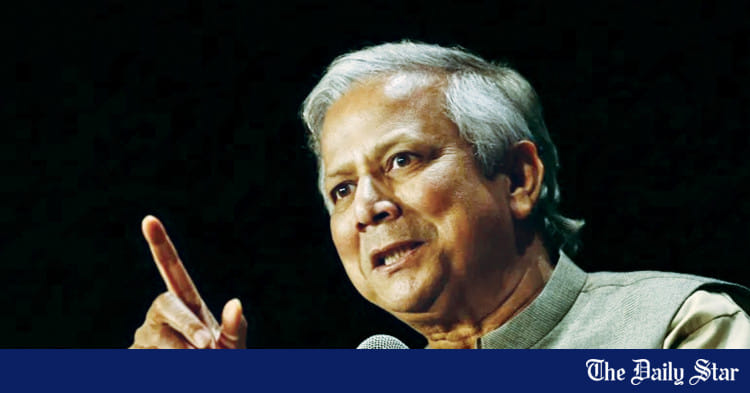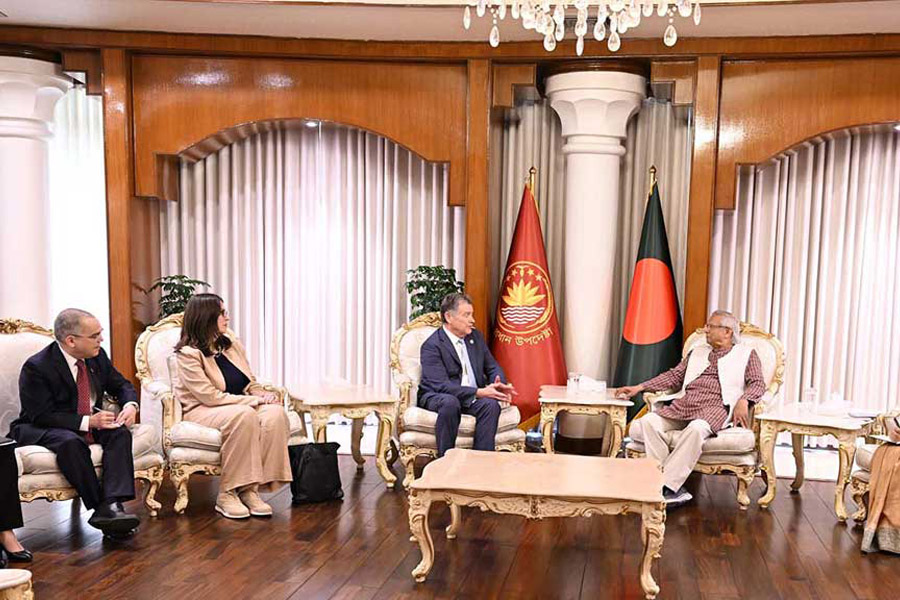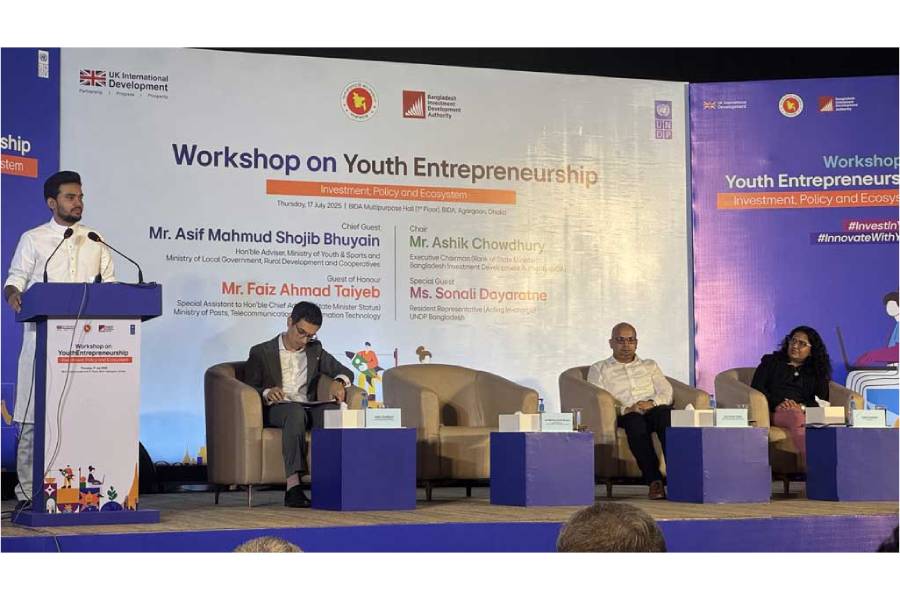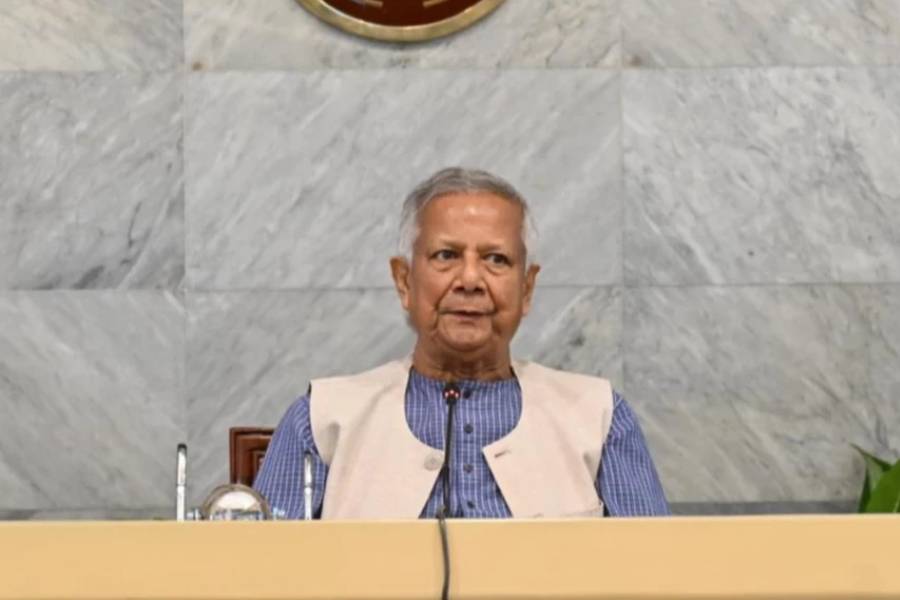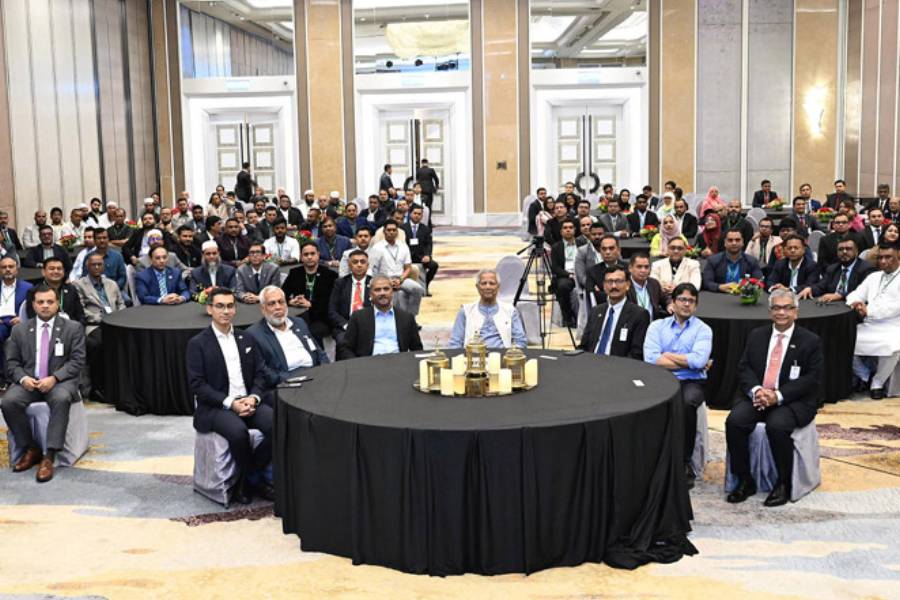One year of interim govt
Govt diplomacy plagued by indecision and lack of coordination
Raheed Ejaz Dhaka
Published: 14 Aug 2025, 08: 09
Logo of the Ministry of Foreign Affairs
The foreign ministry has been largely sidelined in its diplomatic efforts to maintain a balanced relationship with major foreign actors over the past year since the student-people's mass uprising on 5 August 2024 after which Bangladesh stood at a critical juncture.
In this unprecedented situation, attempts to bring balance to international relations became visible. Maintaining balanced diplomacy is always a challenge — and over the past year, that challenge has only intensified.
Under the leadership of Professor Muhammad Yunus, the interim government assumed office on 8 August last year. Less than a month later, Lutfey Siddiqi was appointed as the Chief Adviser’s Special Envoy for international affairs.
In November, Khalilur Rahman was named High Representative for Rohingya issues and other priority matters. By April of this year, he was appointed national security adviser.
These overlapping appointments in handling the country's international affairs have naturally raised questions. Over the past year, there has been ongoing debate — both at home and abroad — over who is actually shaping the foreign policy of the interim government. On critical issues, such as the proposed establishment of a UN human rights mission in Dhaka, other advisers — not the foreign adviser — have played leading roles.
Bangladesh’s relationship with neighbouring India has not always been smooth, and there have been periods of tension under various governments. However, over the past 15 years, ties had grown exceptionally close. In contrast, following the 5 August uprising, Dhaka–Delhi relations have reached a new low — unprecedented since independence. For nearly four months, India has been pushing people across the border into Bangladesh on an almost daily basis — an act considered without precedent.
Bangladesh has repeatedly emphasised its desire for a “positive relationship” with India — one based on mutual respect and shared interests, in light of changing realities and public sentiment.
In September last year, during the UN General Assembly, foreign adviser Md Touhid Hossain met with Indian external affairs minister S Jaishankar.
During that meeting, he proposed the need for talks at the official level, specifically suggesting a meeting between the two foreign secretaries.
That meeting was held in Dhaka in December. Later, in April, chief adviser Professor Muhammad Yunus met Indian prime minister Narendra Modi on the sidelines of the BIMSTEC Summit.
Amid this strain relations, China has taken significant initiatives over the past year to strengthen ties with Bangladesh. In light of the upcoming 50th anniversary of diplomatic relations between the two countries, China has ramped up engagement with the Bangladeshi government, political parties, and civil society — more than at any previous time.
Despite these efforts, tensions have not eased. India has made it clear that the relationship will not return to normal until an elected government is in place in Bangladesh.
Amid this strain relations, China has taken significant initiatives over the past year to strengthen ties with Bangladesh. In light of the upcoming 50th anniversary of diplomatic relations between the two countries, China has ramped up engagement with the Bangladeshi government, political parties, and civil society — more than at any previous time.
In March, chief adviser Professor Muhammad Yunus made his first bilateral visit to China. Earlier, in January, foreign adviser Touhid Hossain also made his first official visit to Beijing.
Notably, there was a strategic connection between the high-level meeting in Beijing between president Xi Jinping and Professor Muhammad Yunus and the Yunus-Modi meeting in Bangkok.
In March, China had invited Professor Yunus to the Boao Forum for Asia, an international development-focused conference. The Bangladeshi government made it clear that the chief adviser would only attend if a formal bilateral meeting with president Xi was scheduled.
China eventually agreed to this condition, leading to the high-level Yunus-Xi meeting in March. Following that, in April, India responded by arranging a meeting between Professor Yunus and prime minister Narendra Modi.
This growing tension with India, paired with increasing closeness to China, has posed a significant challenge to the interim government's attempt to maintain a balanced foreign policy over the past year. Similar challenges have also emerged in managing relations with the United States.
Continuing its efforts to deepen ties with Bangladesh, China invited Bangladesh to a trilateral meeting in May. This 'informal' meeting, held at the foreign secretary level, took place in Kunming. However, the foreign ministry initially expressed reluctance to attend, as the meeting was convened suddenly and lacked a clear objective or agenda. In response, the Chinese ambassador in Dhaka engaged with high-level government officials to secure Bangladesh’s participation.
On 19 June, after attending the Kunming meeting, Bangladesh realised that China and Pakistan had already been preparing for this trilateral initiative. Even without Bangladesh's consent, Pakistan and China announced the formation of a Joint Working Group during the trilateral meeting.
Following the meeting, the foreign adviser clarified that Bangladesh did not agree to the formation of any working group and reiterated that Bangladesh is not joining any alliance. Nevertheless, since then, China has continued to pressure Bangladesh to take an active role in the trilateral initiative.
As a follow-up, China is now pushing to hold the first Joint Working Group meeting in Islamabad. Pakistan has also recently invited Bangladesh to attend the meeting, scheduled for September.
Bangladesh's sudden decision to join the Kunming meeting—without involving the Foreign Ministry—did not align with geopolitical considerations or the country’s broader policy of diplomatic balance. There are doubts about the long-term viability of a trilateral cooperation initiative focused solely on Bangladesh and Pakistan within South Asia.
Meanwhile, the United States has, since late last year—particularly in the run-up to the US presidential election—been expressing concern about Bangladesh’s increasing closeness with China.
Since the political transition on 5 August last year, the interim government’s cooperation with the United States has grown deeper than at any previous time. Within this context, Washington has made it clear from the outset that it wants Bangladesh to keep its defense and security cooperation with China limited. This message has been delivered directly to the highest levels of the Bangladeshi government.
As in many other parts of the world, China's growing presence and influence in Bangladesh and the surrounding region has caused discomfort for the United States. This became evident in the tough negotiations over tariffs. Ultimately, the US agreed to a tariff rate that brought temporary relief for Bangladesh. However, balancing its expanding cooperation with the US while maintaining relations with China will remain a long-term challenge for Bangladesh's foreign policy.
The foreign ministry’s input was overlooked regarding Bangladesh’s participation in China’s trilateral initiative, and a similar pattern of exclusion was repeated during the counter-tariff negotiations. While the foreign ministry had limited involvement until April, from the second half of June onward, it was excluded entirely from discussions with the United States on tariff issues.
Yet, in April—immediately after president Donald Trump announced the counter-tariff decision—the foreign ministry had clearly stated that to retain access to the US market, the government should not merely make promises but must directly communicate, with private sector involvement, what Bangladesh would import from the US.
Despite holding talks, the government struggled with indecision. Initially, the private sector was also left out of the process. Eventually, in the final round of discussions, business leaders were brought in, leading to announcements of various purchases and contracts, which helped resolve the situation.
Around the same time in April, a separate controversy erupted over the issue of a humanitarian corridor in Myanmar’s Rakhine state. In response to journalists' questions at the end of April, foreign adviser Touhid Hossain said, "I can tell you this much — in principle, we are supportive, as it would be a humanitarian passage. However, we have conditions. If those are met, we will certainly cooperate under UN supervision."
These contradictory statements from two senior policy figures within a span of two weeks sparked debate in political and civil circles. Particularly on such a sensitive matter as a “humanitarian corridor,” questions were raised: why were decisions being made without national-level discussion, in whose interest, and for what purpose? Ultimately, the matter did not progress further.
In stark contrast, national security adviser Khalilur Rahman made a completely different statement during a seminar at the Bangladesh University of Professionals (BUP).
He said, "We have not held any discussions on a humanitarian corridor. Nor have we made any agreements on this or any related matter with relevant parties."
These contradictory statements from two senior policy figures within a span of two weeks sparked debate in political and civil circles. Particularly on such a sensitive matter as a “humanitarian corridor,” questions were raised: why were decisions being made without national-level discussion, in whose interest, and for what purpose? Ultimately, the matter did not progress further. One wing of the government had reportedly held preliminary talks with the United Nations and the Arakan Army, although the government officially denied any such discussions.
Overall, over the past year, the interim government's diplomacy appears to have been trapped in a cycle of indecision and lack of coordination. Right after assuming power, the appointment of multiple individuals to manage international relations revealed the government’s ambiguity and lack of clarity. As time went on, the Foreign Ministry’s role was increasingly marginalised in handling multidimensional, challenging, and high-stakes international issues. Whether the diminishing role of the foreign ministry in a country’s diplomacy is desirable or not — time will tell.






